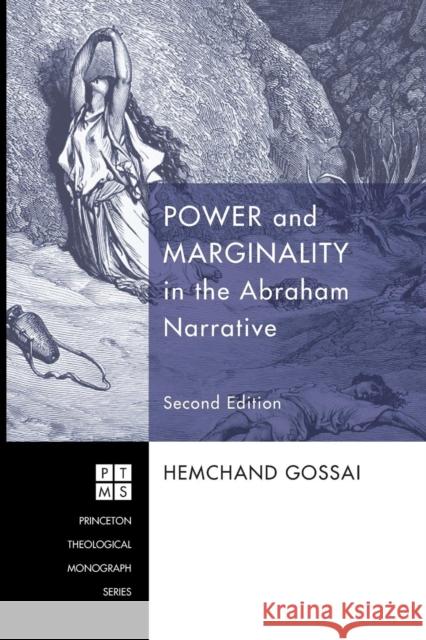Power and Marginality in the Abraham Narrative - Second Edition » książka
Power and Marginality in the Abraham Narrative - Second Edition
ISBN-13: 9781556358746 / Angielski / Miękka / 2010 / 168 str.
Power and Marginality in the Abraham Narrative - Second Edition
ISBN-13: 9781556358746 / Angielski / Miękka / 2010 / 168 str.
(netto: 101,36 VAT: 5%)
Najniższa cena z 30 dni: 104,96
ok. 16-18 dni roboczych.
Darmowa dostawa!
Description: Who will speak for Hagar or Isaac or Sarah or the daughters of Lot? With an interpretive trajectory that moves from the margin to the center, this book gives voice to the marginalized and voiceless in the Abraham Narratives. Further, this approach is based on the premise that there is a continuum of power in the various characters in these narratives and that the most powerful are those who are lodged at the center while those with the least power are on the margin or beyond. The intent of this study is to direct and perhaps re-direct our attention to the text and with fresh eyes seek a sometimes radical realignment of roles and power. It is true that many of the characters focused on in this book are women. This is not, however, only a book about women, though clearly women are the principal characters on the margin. Endorsements: ""Gossai is a bold poser of new questions. And when new questions are asked of the text, fresh readings become available. In Gossai's capable hands, there are no innocent texts. Now there are hidden writs of power that pervade the text. Gossai invites the reader to the thickness of the text that cuts beneath surface meanings to where real life-and-death issues are exposed. Abraham and the cast of characters around him are shown to be, like the reader, summoned to hard choices to make and real risks to run."" --Walter Brueggemann author of A Pathway of Interpretation and Divine Presence amid Violence About the Contributor(s): Hemchand Gossai is Professor of Religious Studies at Georgia Southern University. He is also the author of Barrenness and Blessing: Abraham, Sarah, and the Journey of Faith; Social Critique by Israel's Eighth-Century Prophets; and River Crossings: Memories of a Journey--A Memoir.
Description:Who will speak for Hagar or Isaac or Sarah or the daughters of Lot? With an interpretive trajectory that moves from the margin to the center, this book gives voice to the marginalized and voiceless in the Abraham Narratives. Further, this approach is based on the premise that there is a continuum of power in the various characters in these narratives and that the most powerful are those who are lodged at the center while those with the least power are on the margin or beyond. The intent of this study is to direct and perhaps re-direct our attention to the text and with fresh eyes seek a sometimes radical realignment of roles and power. It is true that many of the characters focused on in this book are women. This is not, however, only a book about women, though clearly women are the principal characters on the margin.Endorsements:""Gossai is a bold poser of new questions. And when new questions are asked of the text, fresh readings become available. In Gossais capable hands, there are no innocent texts. Now there are hidden writs of power that pervade the text. Gossai invites the reader to the thickness of the text that cuts beneath surface meanings to where real life-and-death issues are exposed. Abraham and the cast of characters around him are shown to be, like the reader, summoned to hard choices to make and real risks to run.""--Walter Brueggemannauthor of A Pathway of Interpretation and Divine Presence amid ViolenceAbout the Contributor(s):Hemchand Gossai is Professor of Religious Studies at Georgia Southern University. He is also the author of Barrenness and Blessing: Abraham, Sarah, and the Journey of Faith; Social Critique by Israels Eighth-Century Prophets; and River Crossings: Memories of a Journey--A Memoir.











